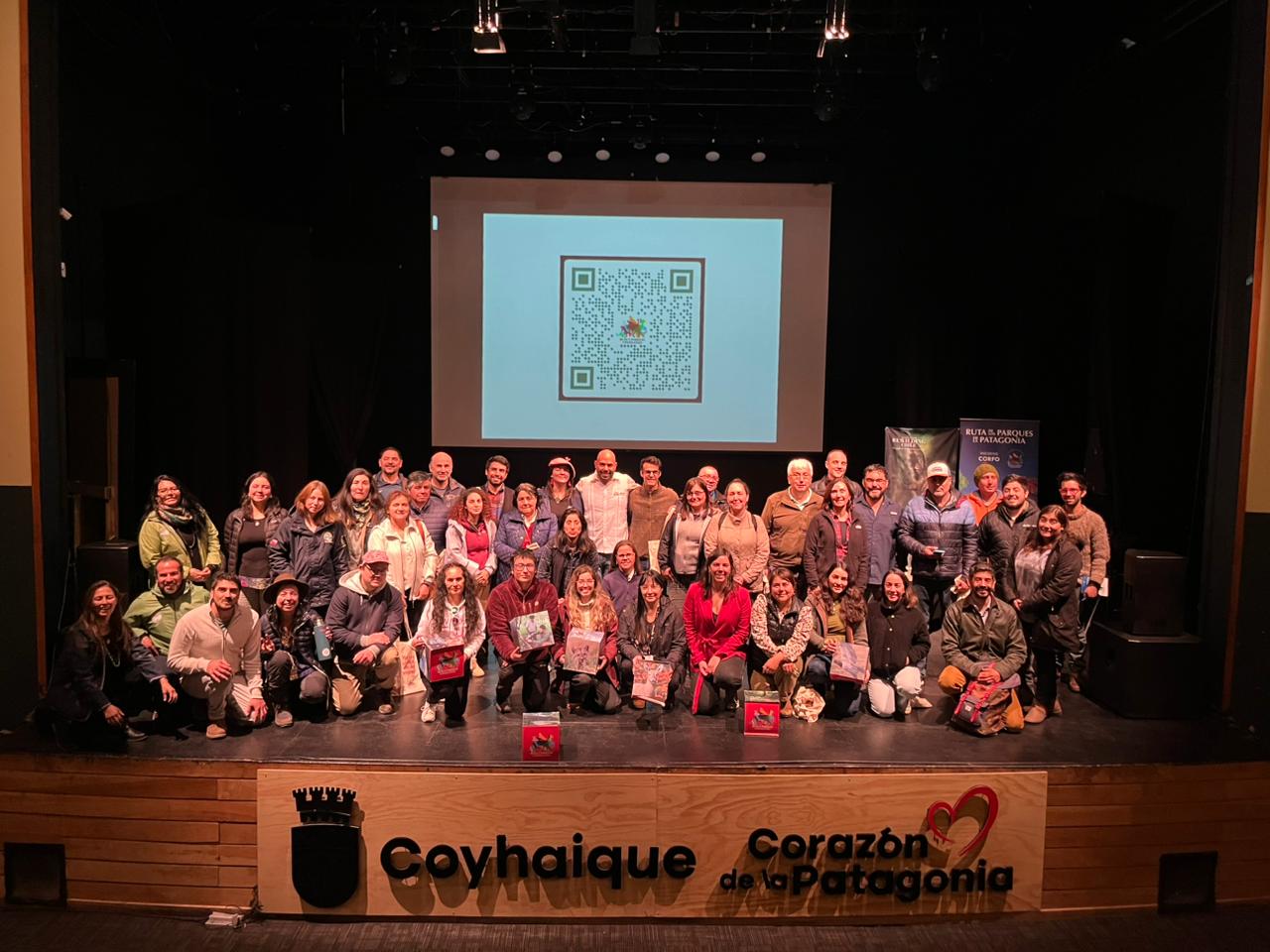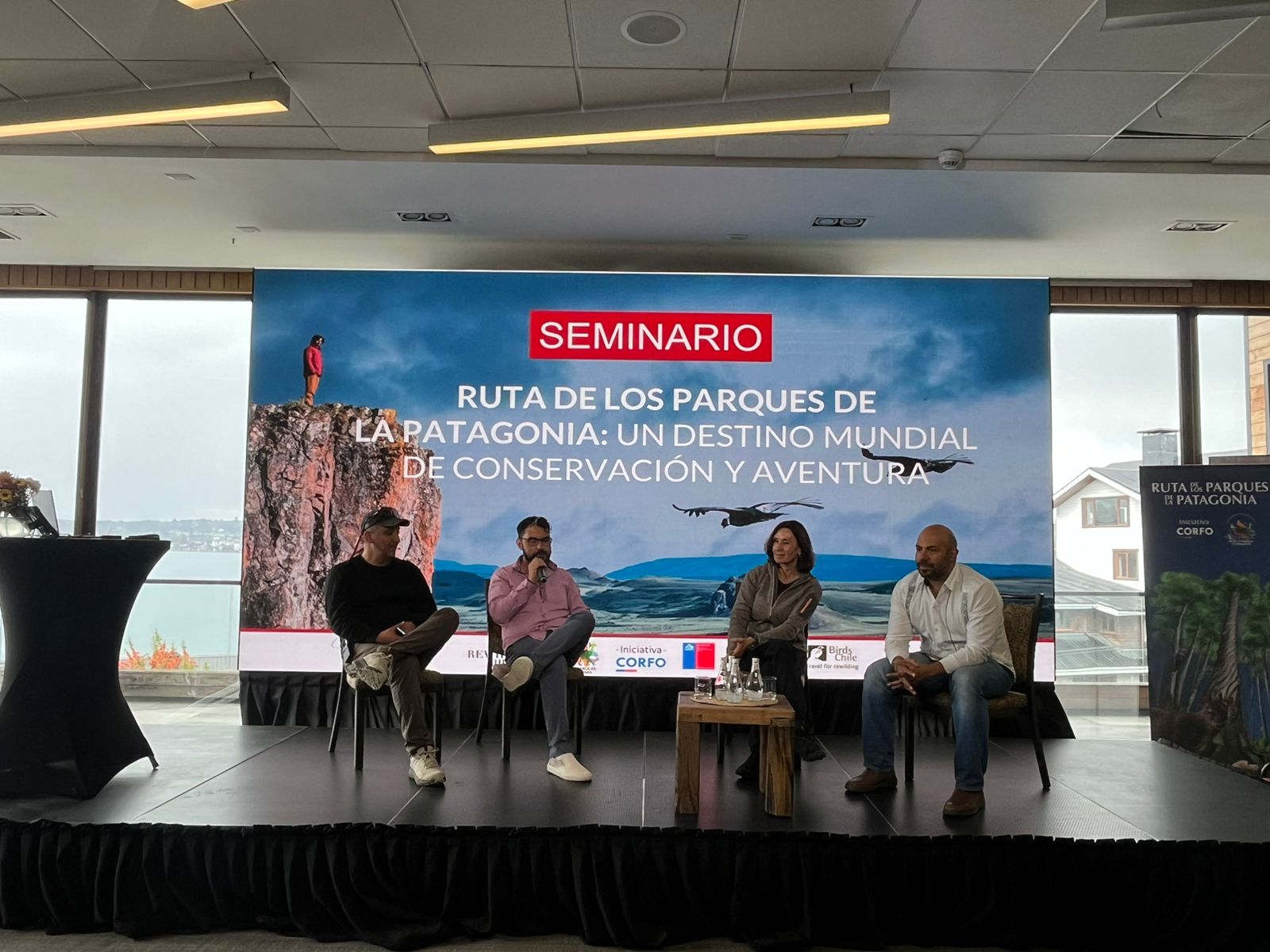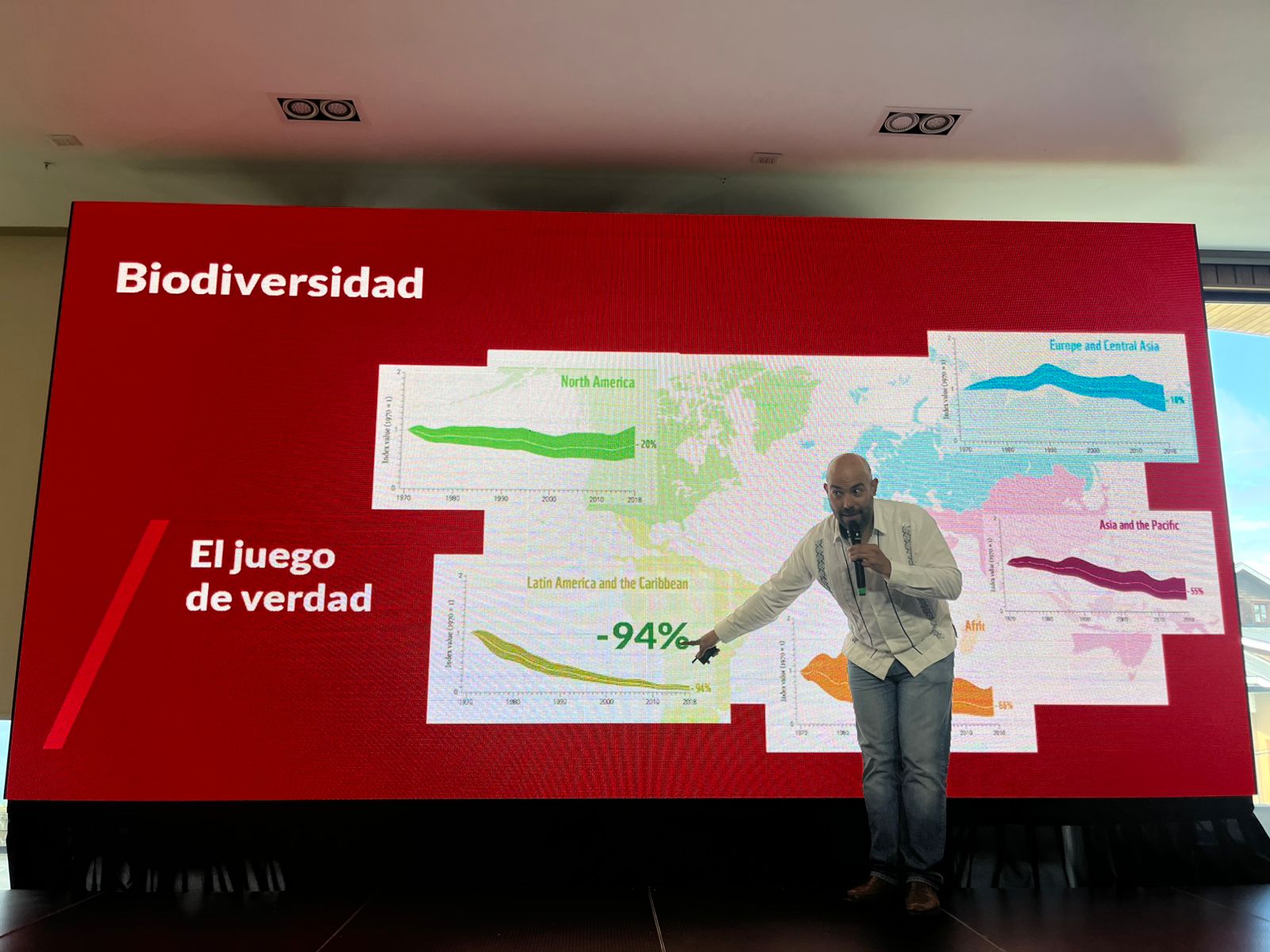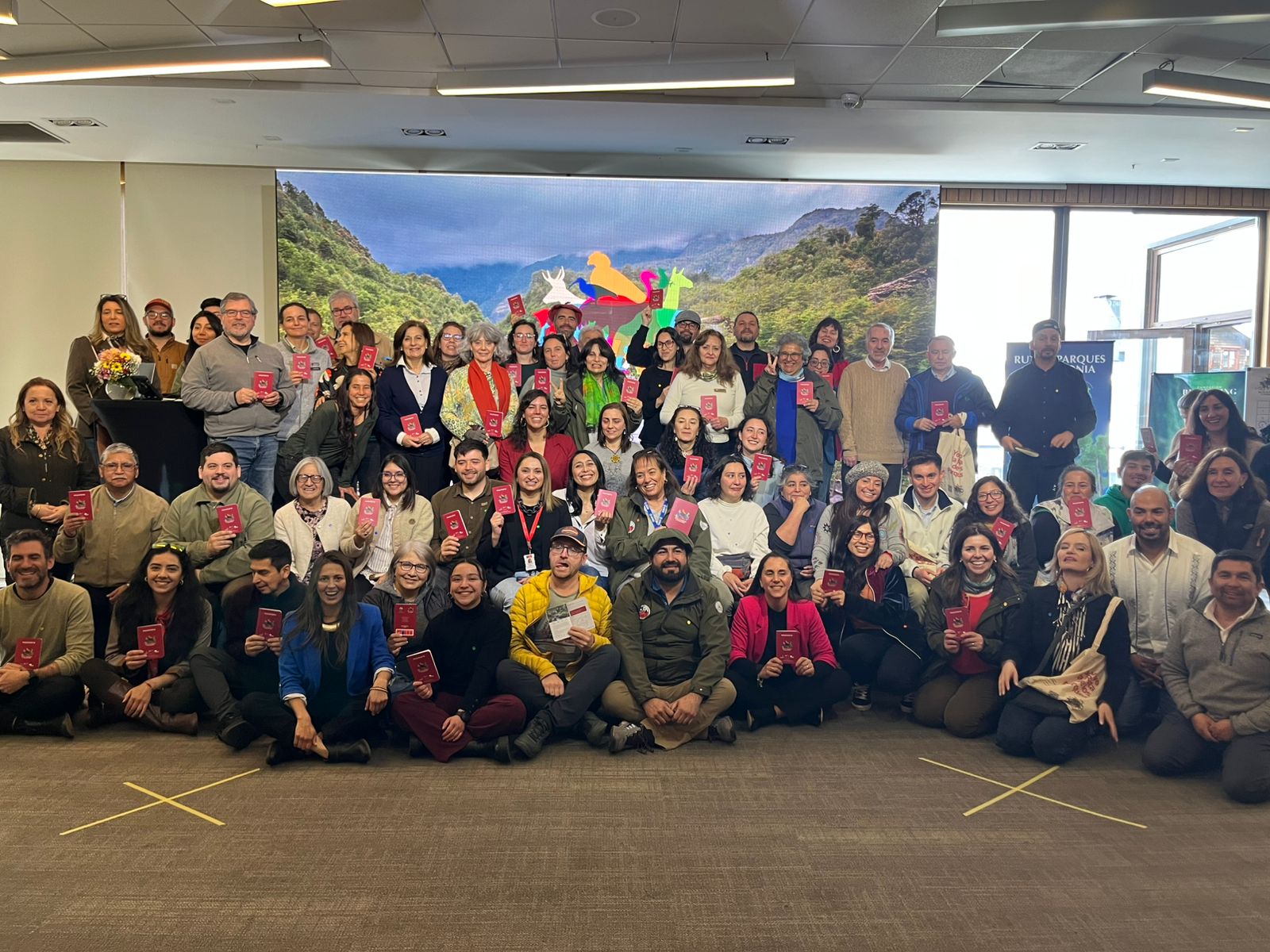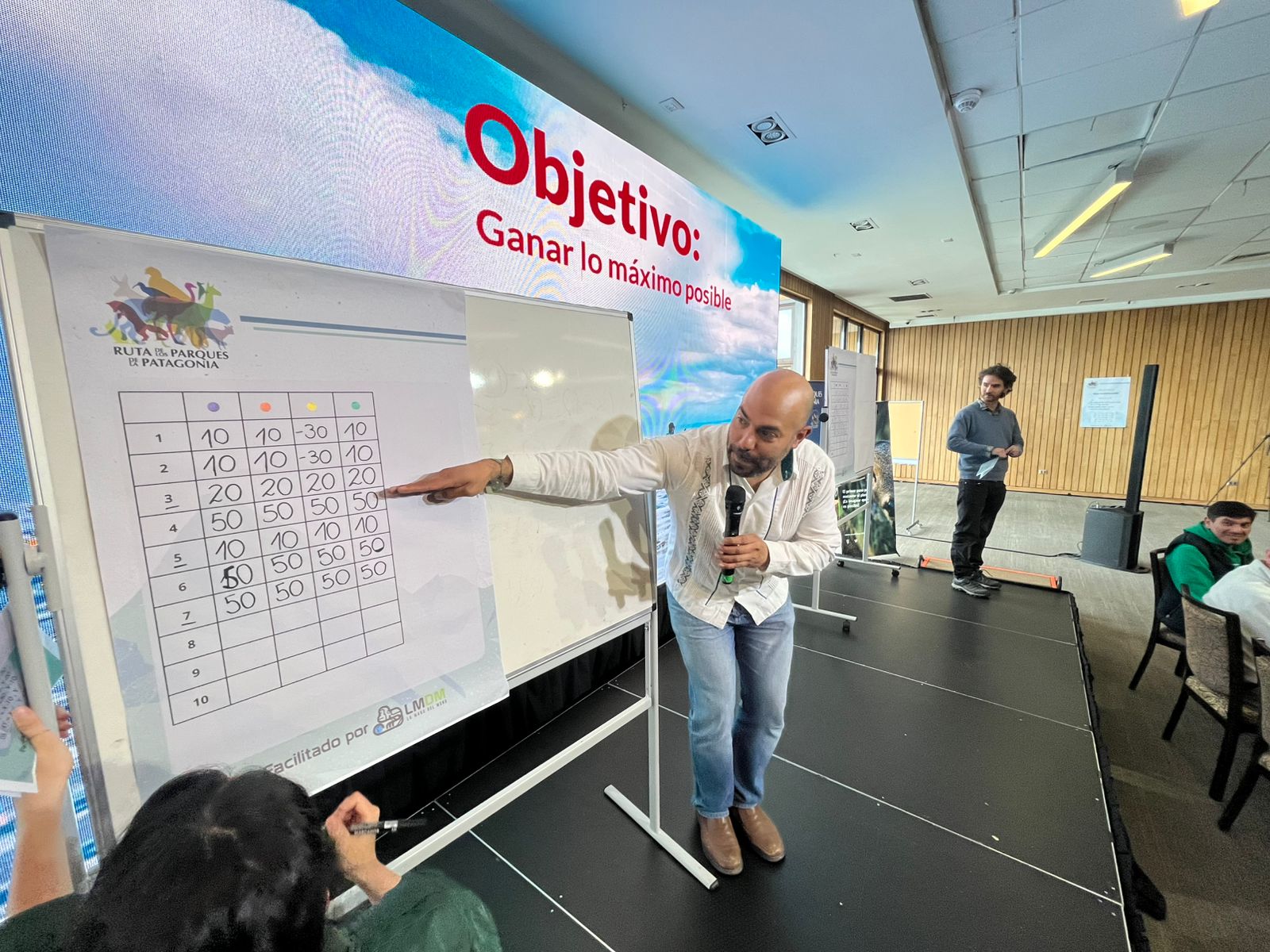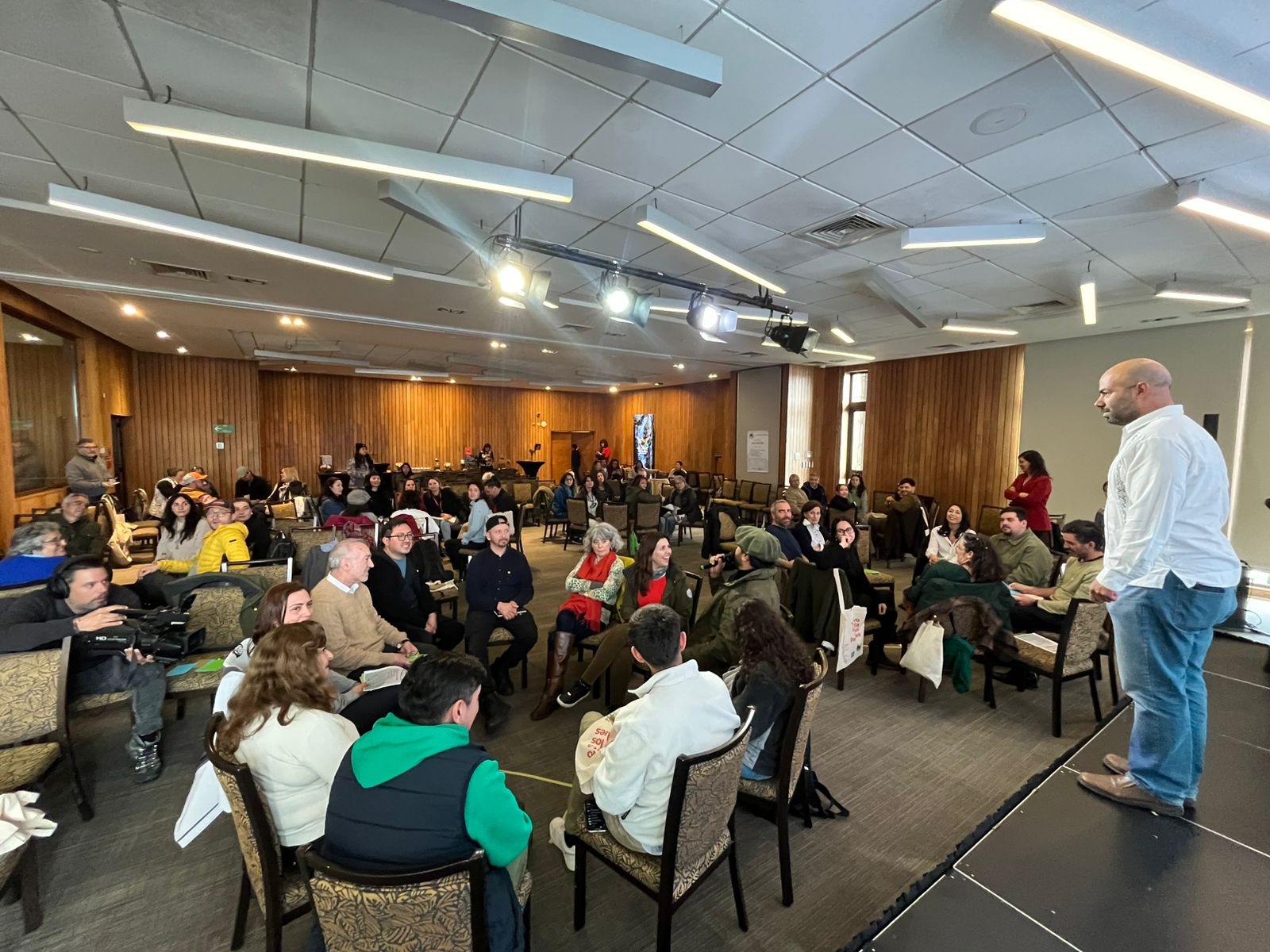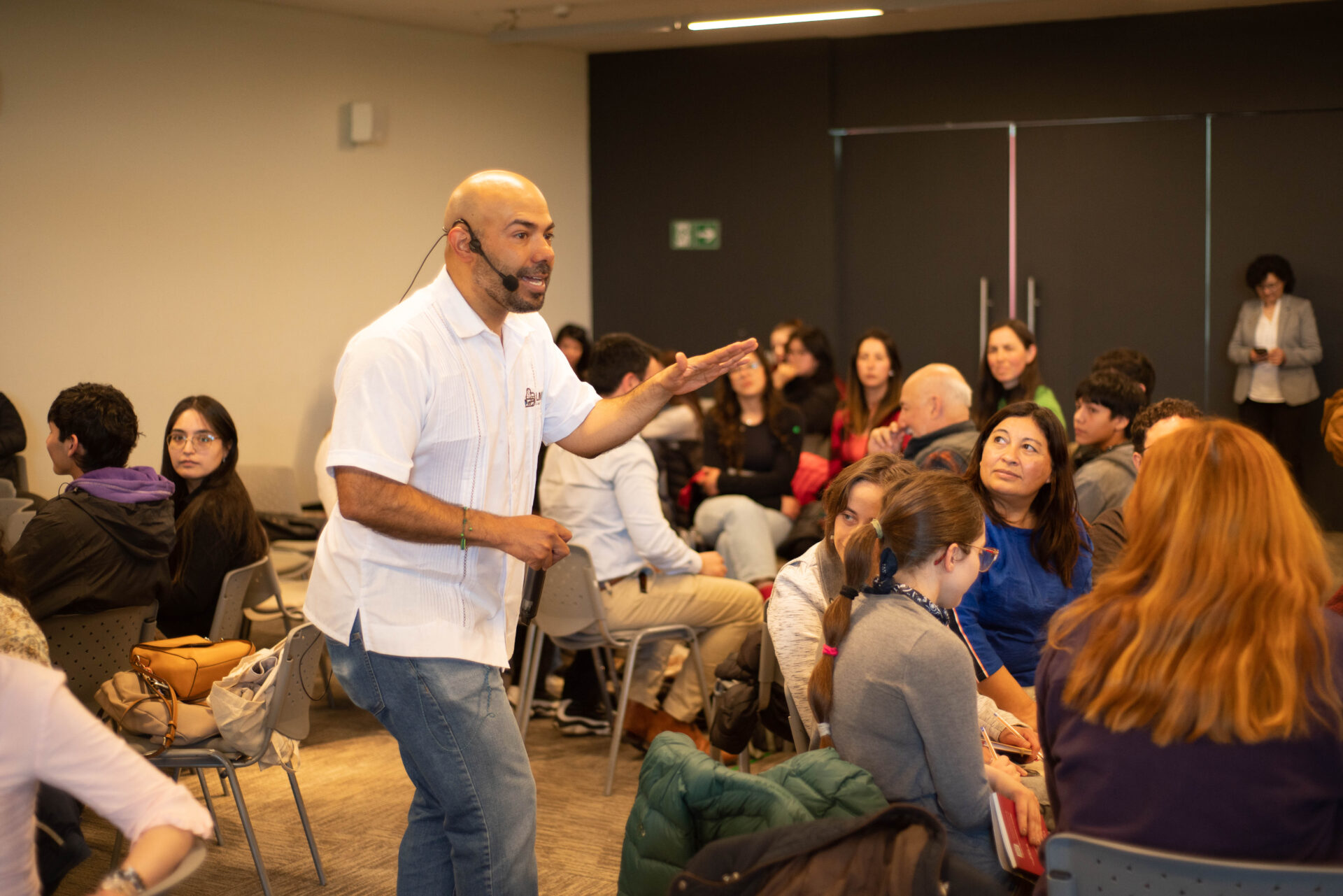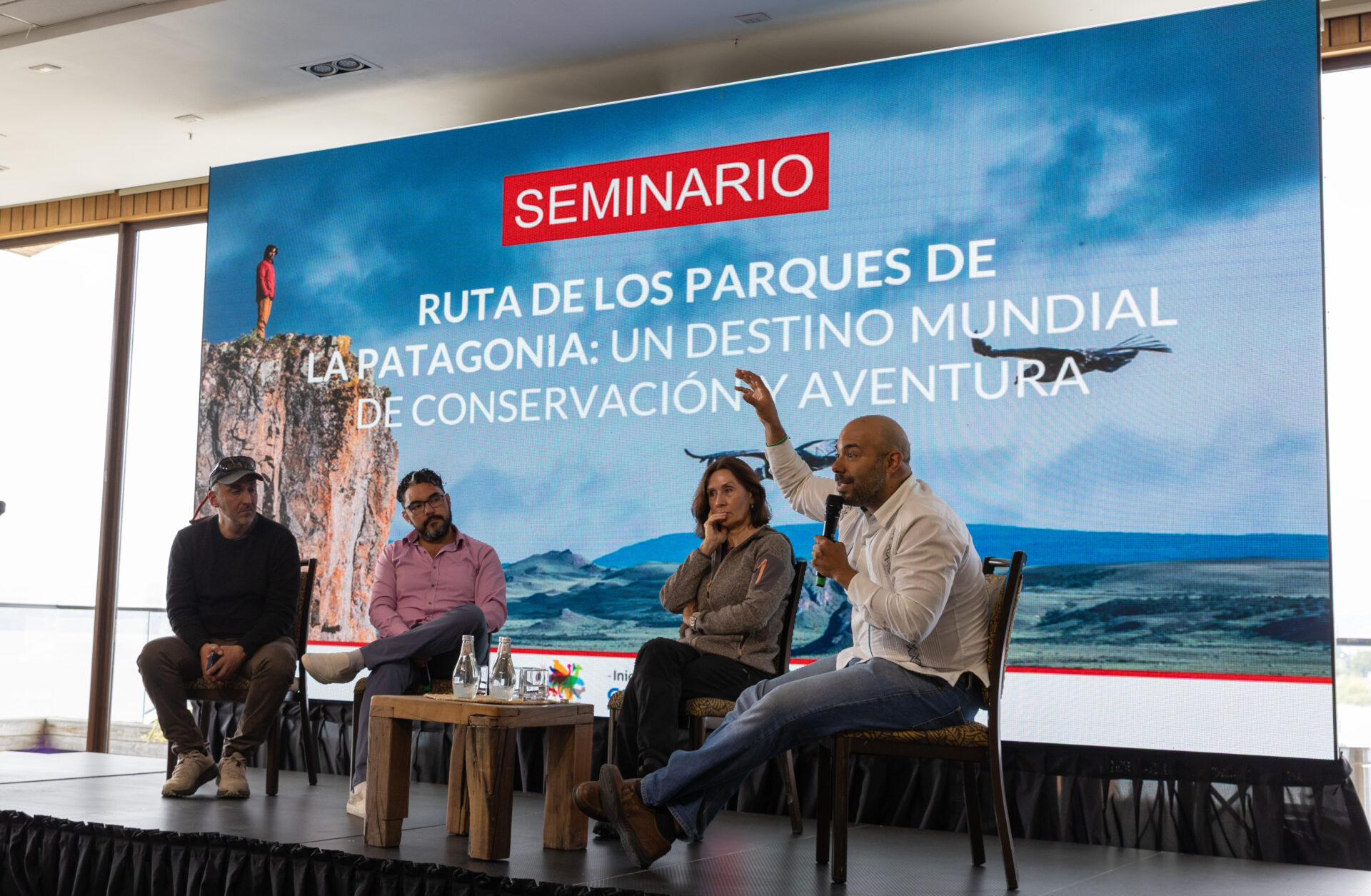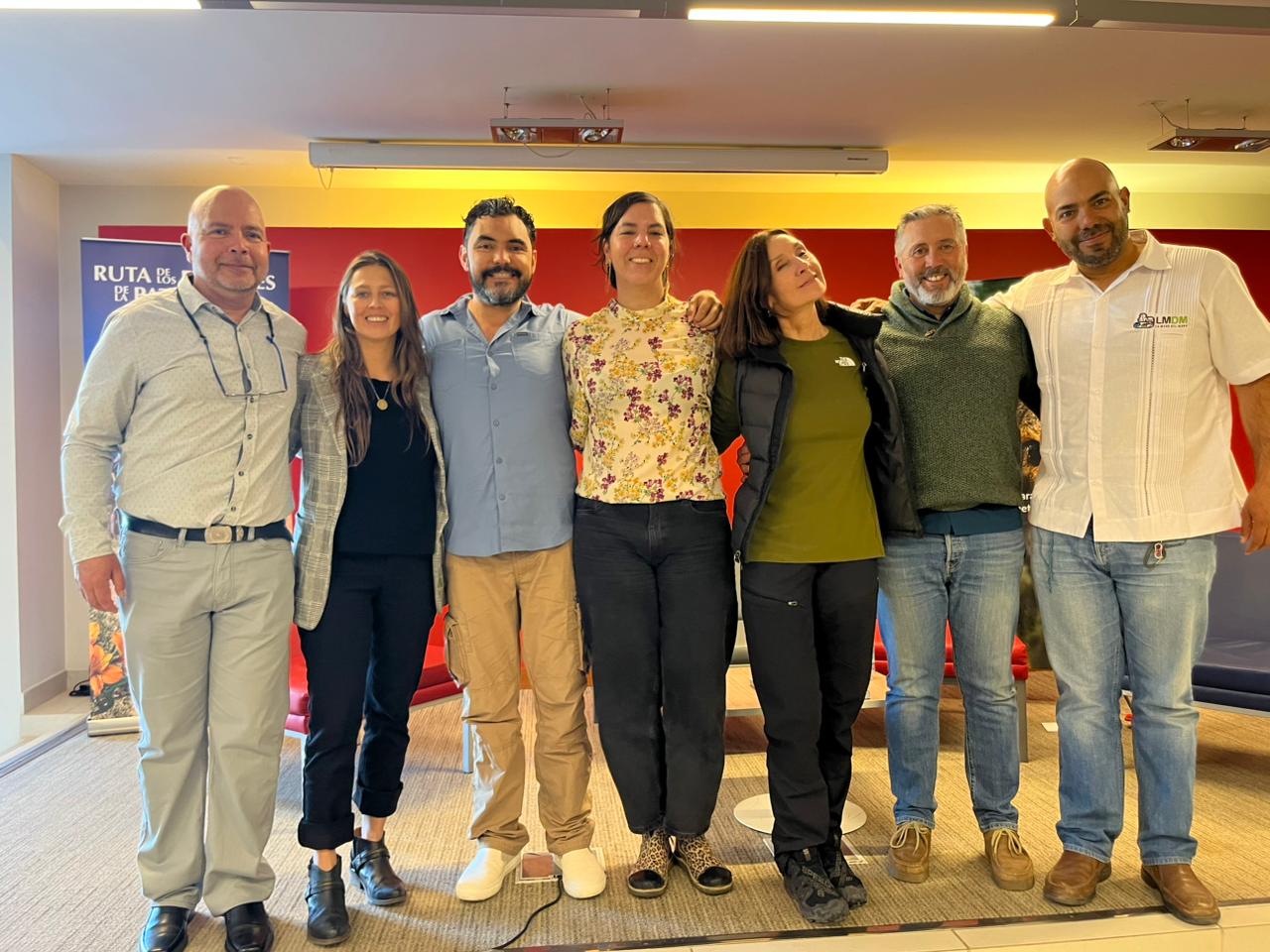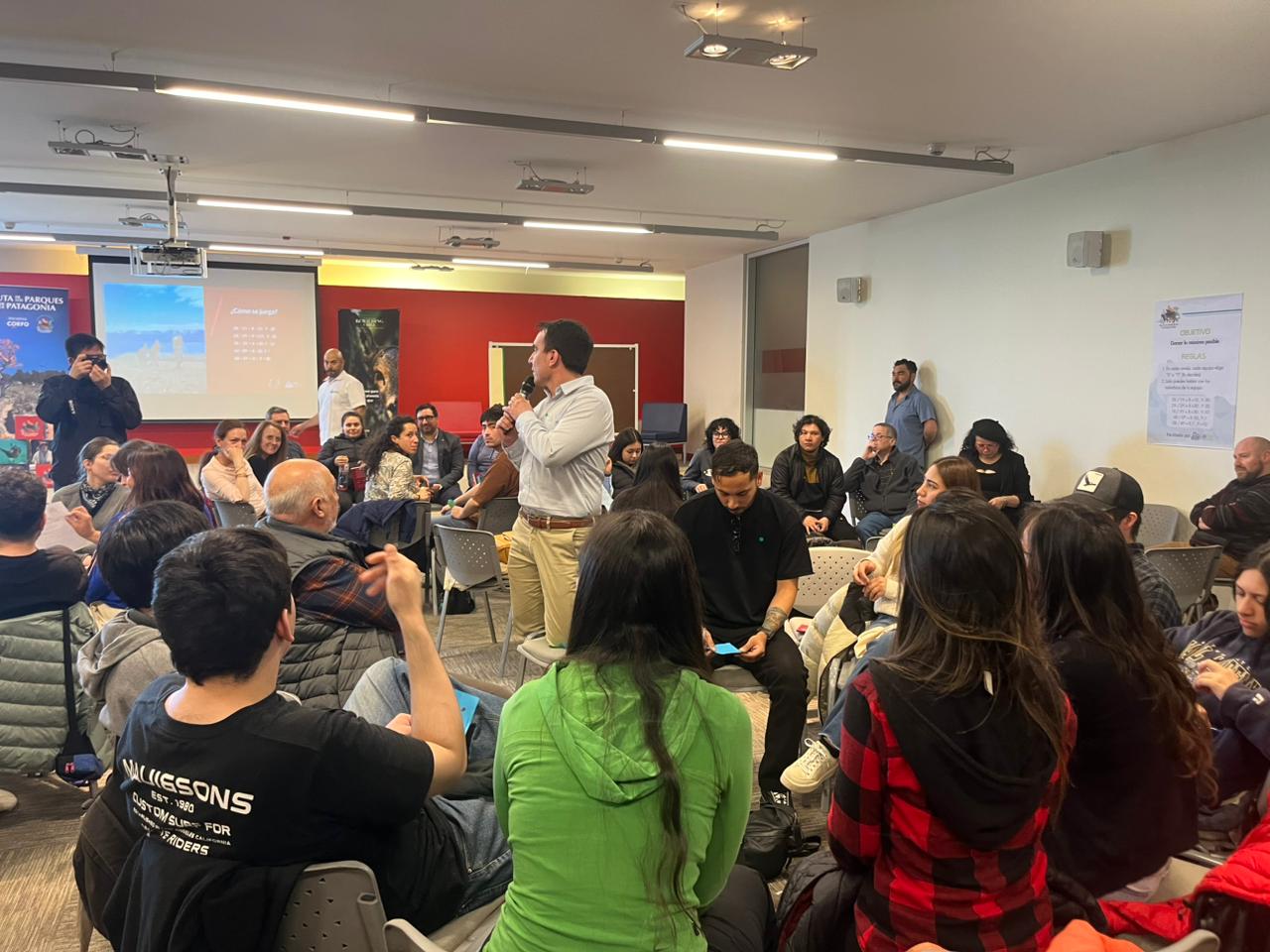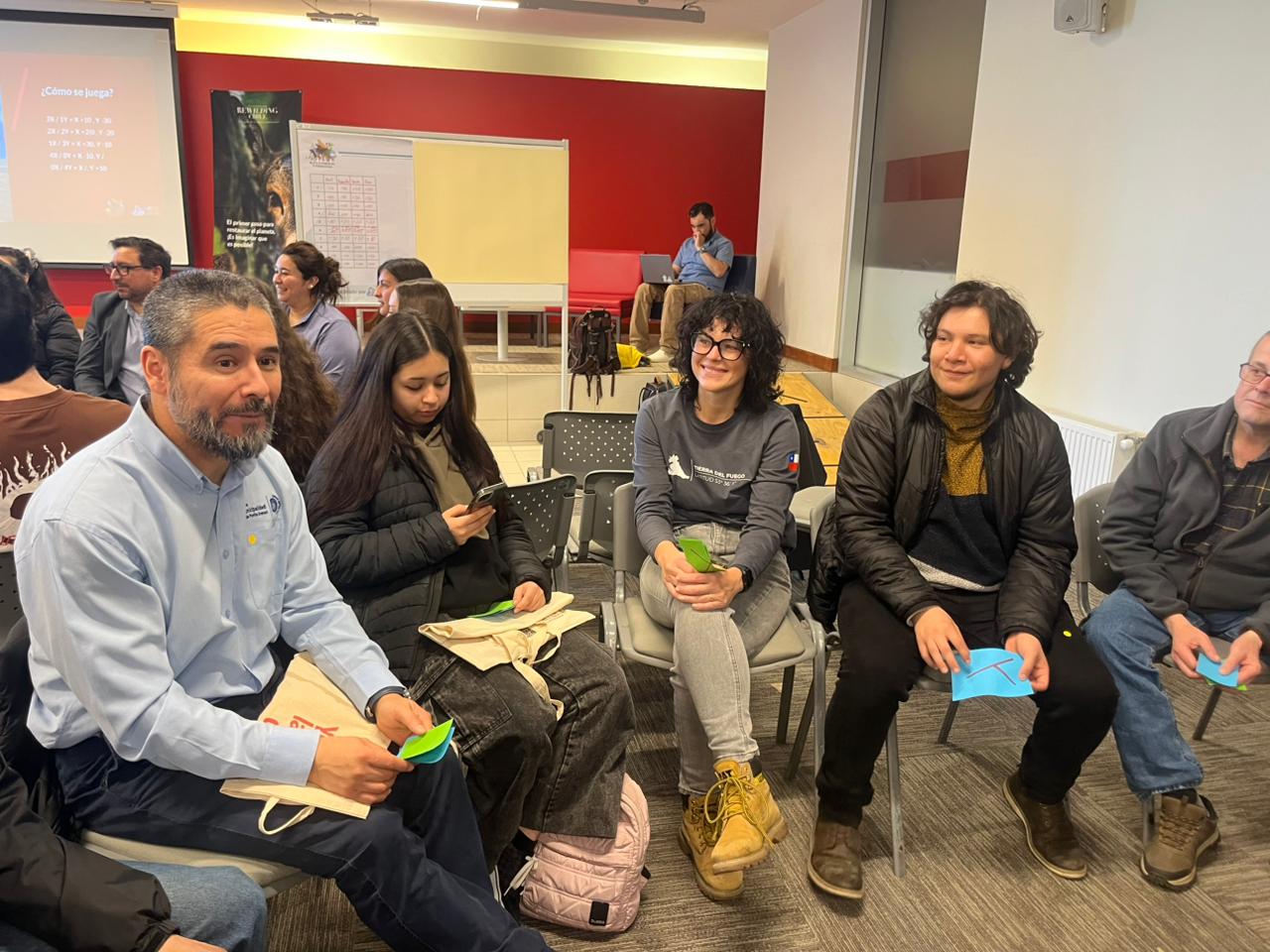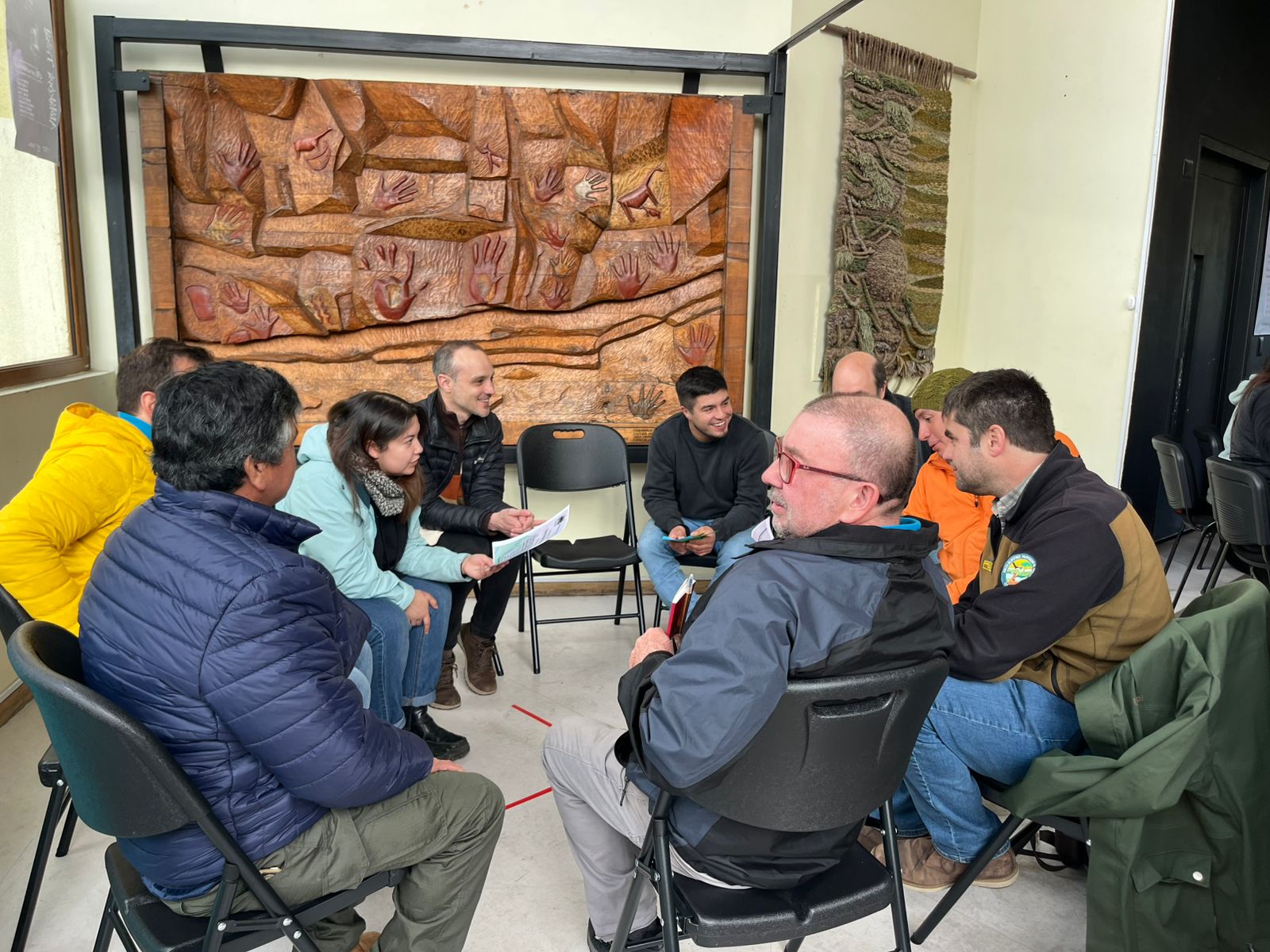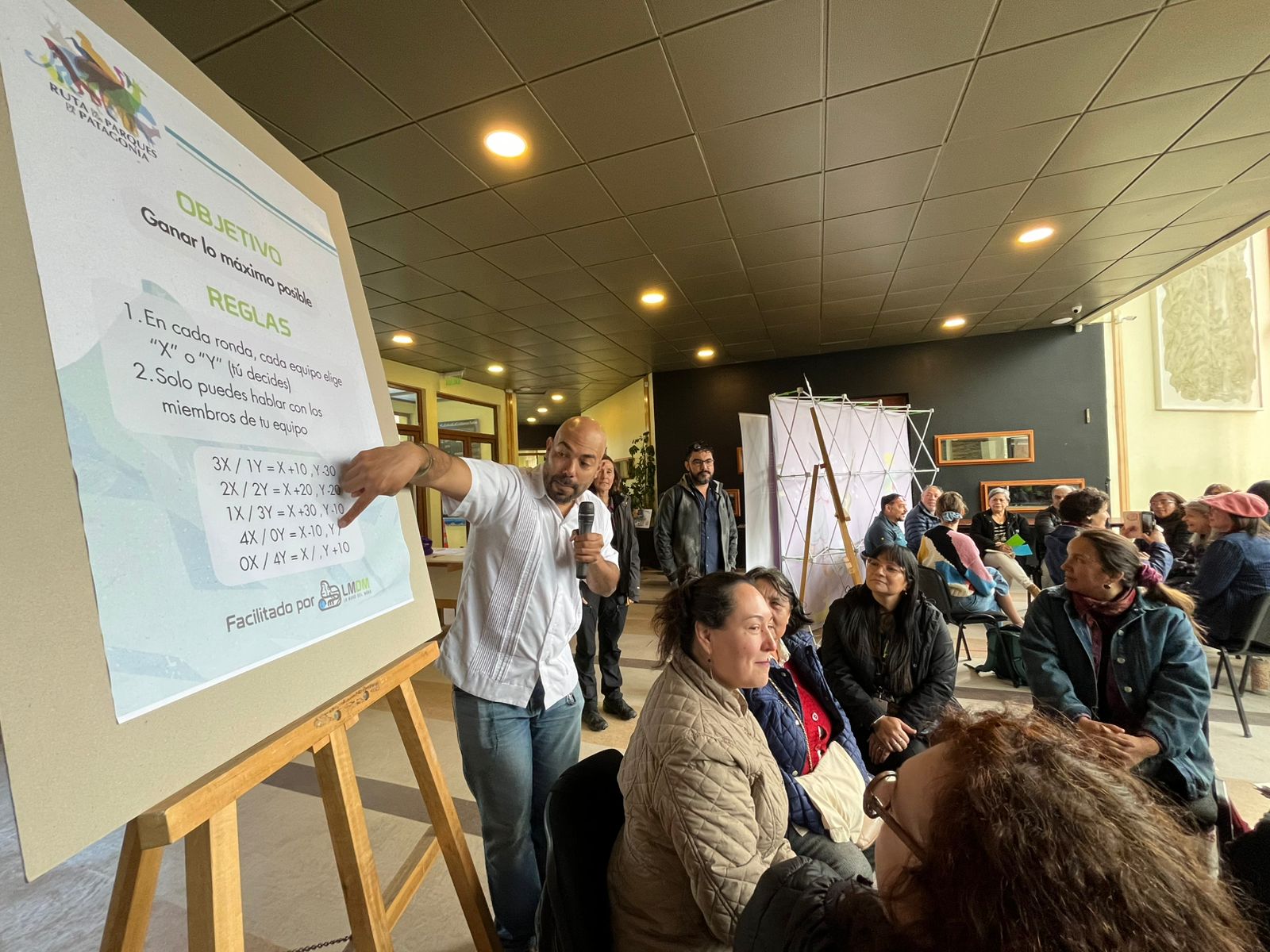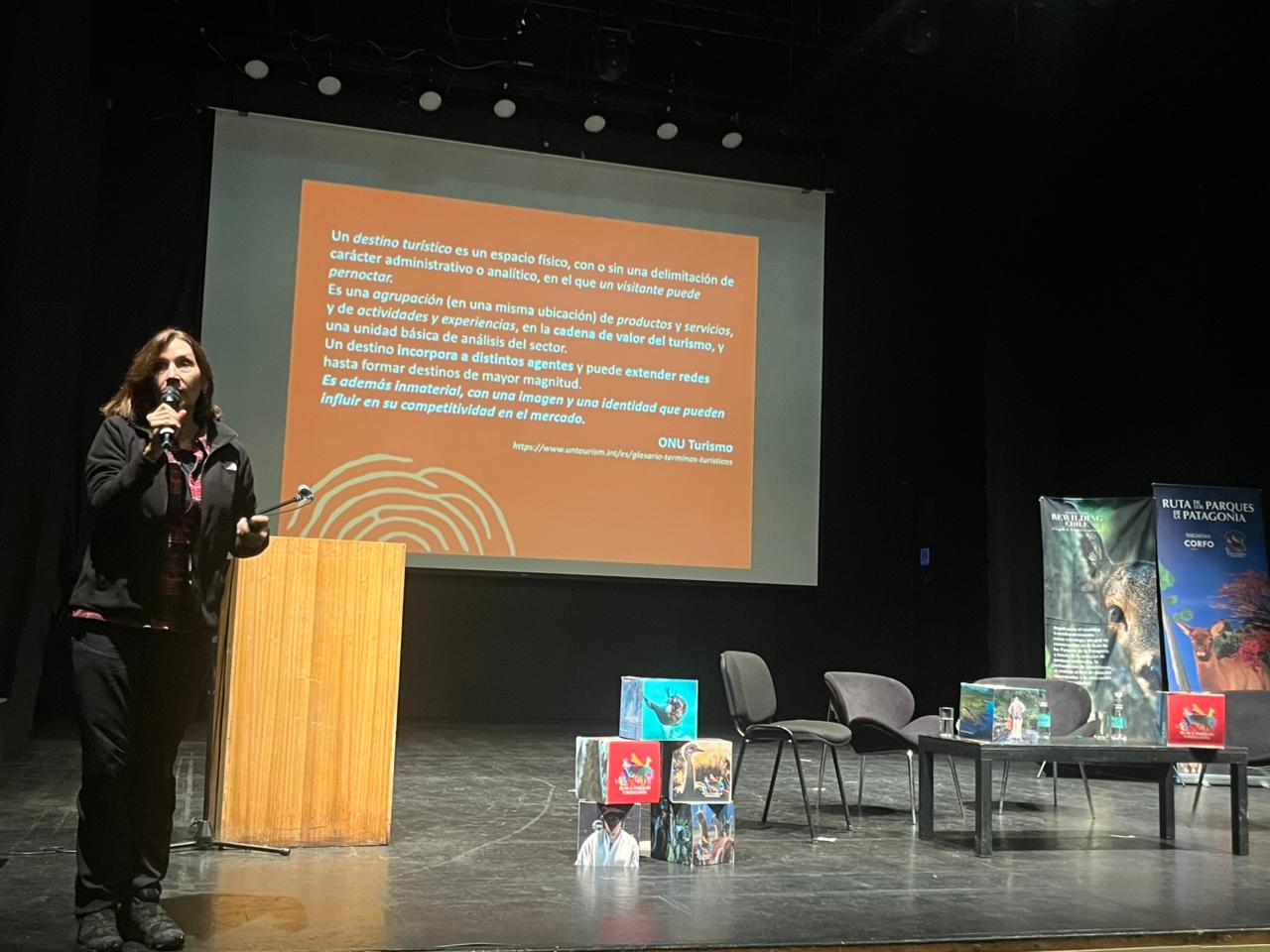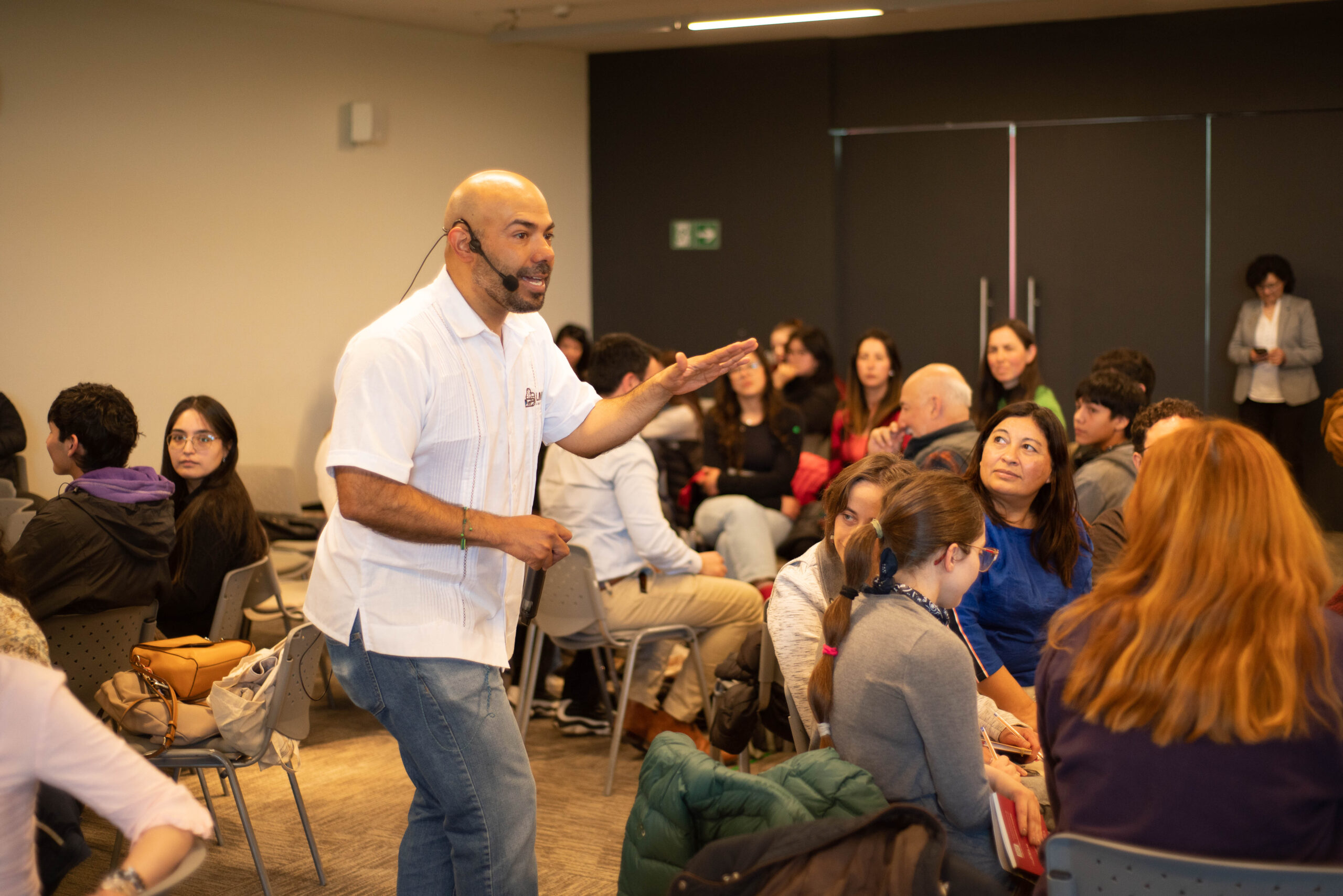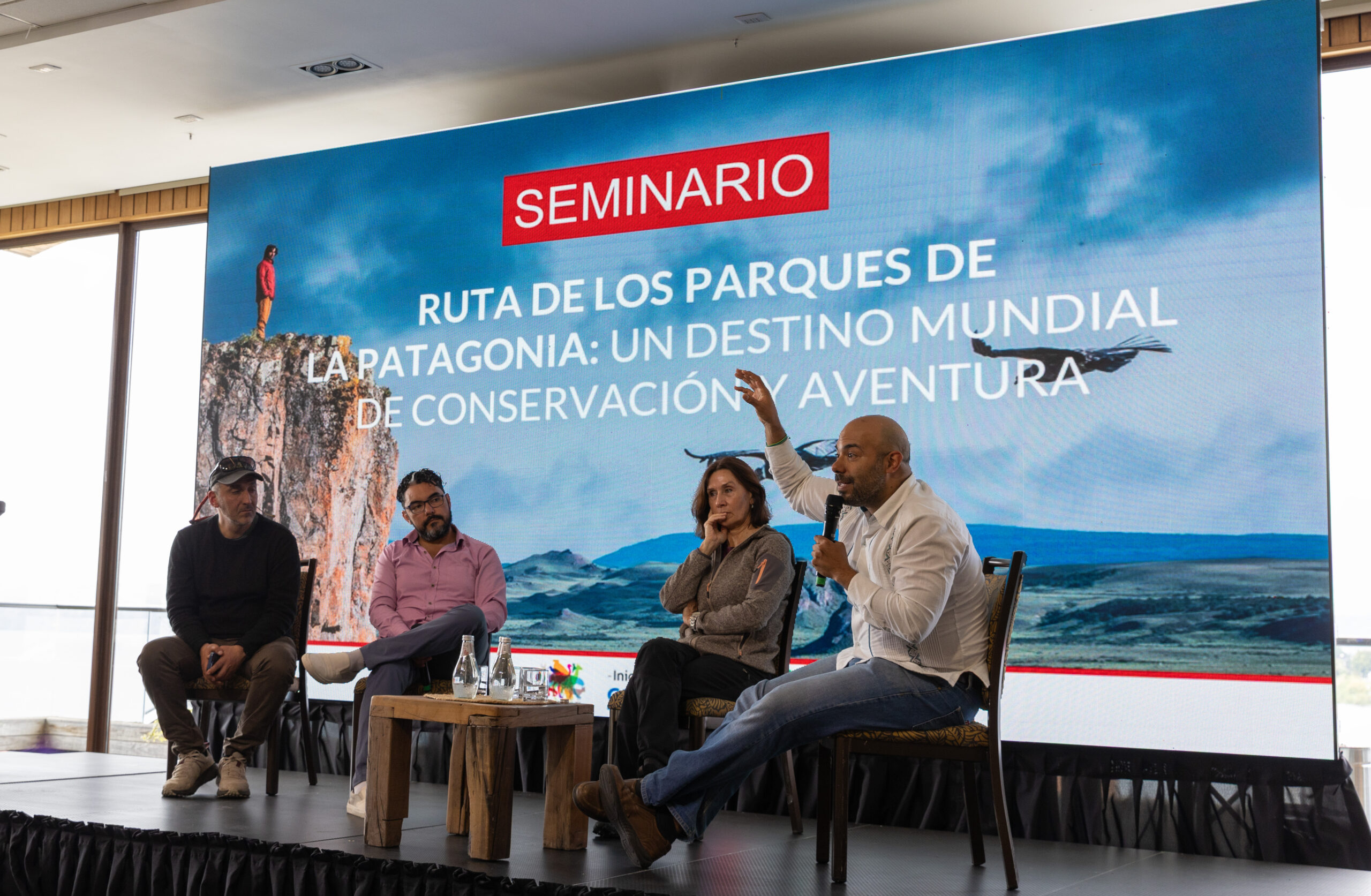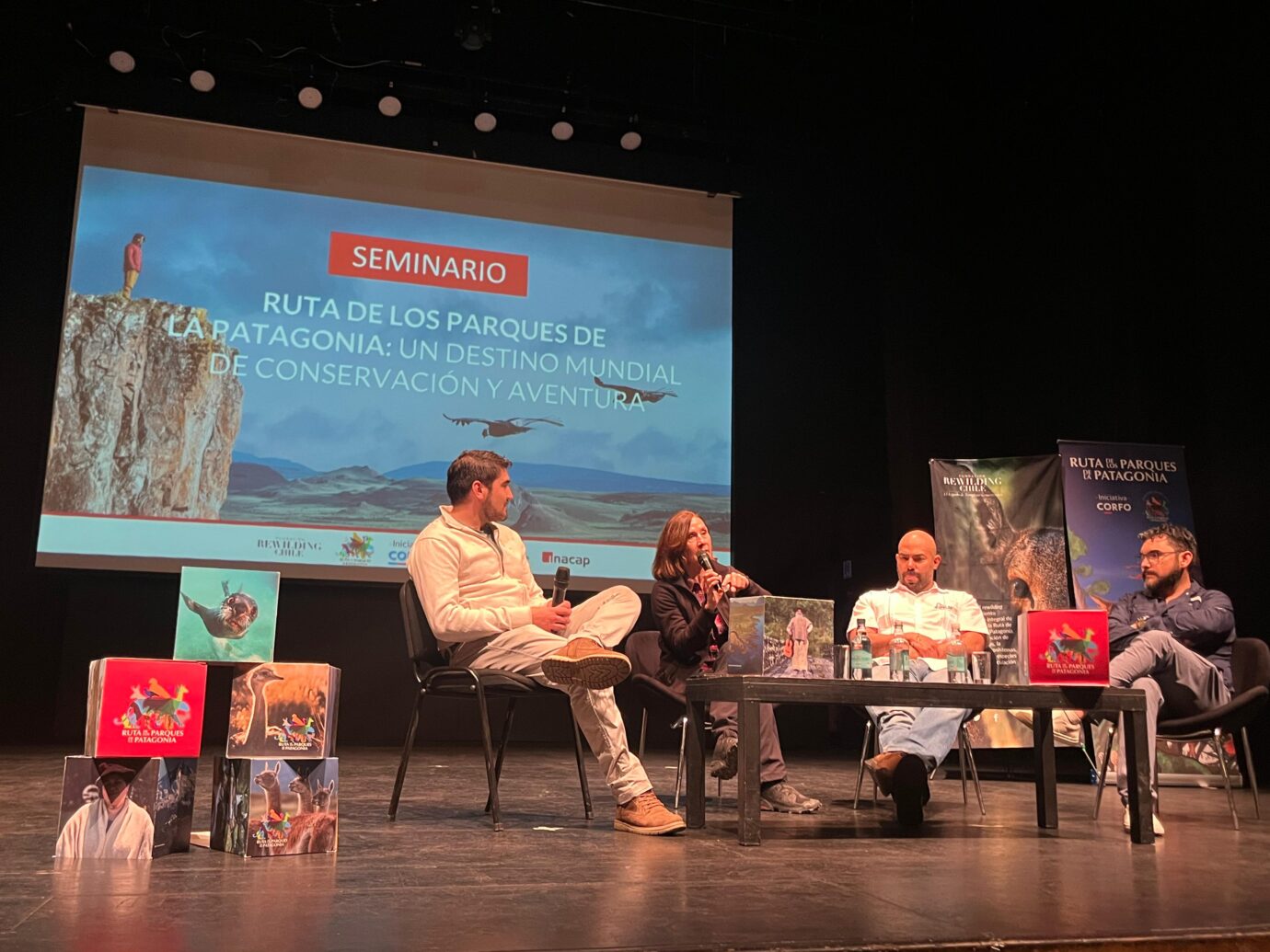
Over 300 people take part in seminars showcasing the Route of Parks of Patagonia as a conservation tourism destination
With the participation of experts from Mexico, Colombia, and Argentina, a series of seminars focused on sustainable and conservation-oriented tourism took place in Puerto Varas, Coyhaique, and Punta Arenas.

From October 20 to 24, the cities of Puerto Varas, Coyhaique, and Punta Arenas became the epicenter of discussions about the future of conservation tourism in Patagonia. The seminars—“Route of Parks of Patagonia: A Global Destination for Conservation and Nature”—were organized by Corfo’s Transforma Mesoregional Program and Fundación Rewilding Chile, with the collaboration of Sernatur and Conaf.
The events were held in the capitals of the Los Lagos, Aysén, and Magallanes regions, gathering more than 300 participants from the tourism sector, including representatives from public institutions, private companies, academia, specialized guides, tour operators, and students.
Among the main topics addressed were the need to adapt to an ever-changing visitor profile, the challenge of designing destinations that meet increasingly complex expectations, and the importance of collaboration as a key factor for more effective management. Three international experts contributed their insights on the current state of conservation tourism and the challenges it faces.
Mauricio Miramontes, co-founder and Head of Partnership Development at La Mano del Mono, a Mexican adventure tourism company with over 20 years of experience promoting regenerative nature-based destinations, emphasized that true sustainability requires a paradigm shift:
“To promote a nature destination like the Route of Parks, we must move away from working individually for our own maximum benefit and understand that true success lies in pursuing collective and community gain, leading to shared benefits for both people and nature,” he said.
Ana Inés Figueroa, CEO of Adentrando Destination Management Company in Argentina, which specializes in responsible and active tourism, highlighted that positioning the Route of Parks in travelers’ minds requires a tourism offering based on three elements:
“It must be well-planned in logistical and practical terms, foster emotional and intellectual connection, and create memorable experiences that stay with visitors,” she explained.
Meanwhile, Andrés Díaz, Country Manager of the Adventure Travel Trade Association (ATTA) in Colombia, underlined the need to adapt tourism offerings to a market that increasingly seeks responsible and environmentally respectful experiences:
“Chile has significantly improved its competitiveness in adventure tourism in recent years, but the real challenge is to advance toward a form of tourism that generates positive impacts along the Route of Parks,” he stated.
“What began as an idea has now become a state-led program that carries forward that legacy and continues to promote the Route of Parks as a key driver of development. This initiative not only protects biodiversity but also stimulates the economies of over 60 local communities—creating a tourism model that truly benefits both nature and people”
Support from Corfo’s Transforma Program
Throughout the three-day seminar series, the Corfo Transforma Mesoregional Route of Parks of Patagonia Program was highlighted. This initiative brings together public and private actors to close gaps in tourism-related economic development, strengthen human capital, and position Chile as a global leader in nature and adventure tourism.
“Through the Transforma Route of Parks of Patagonia program, we aim to strengthen public–private collaboration and innovation around nature-based tourism. This seminar allows us to project a sustainable and competitive destination, where tourism rooted in a connection with nature becomes a driver of development for southern territories,” said Claudio Maggi, Corfo’s Manager of Territorial Development.
Raffaele Di Biase, president of the program, described the seminars as a unique opportunity to connect across regions through shared dialogue:
“Beyond promoting collaboration among different stakeholders, we have built a shared vision for a more sustainable and responsible tourism model—something that’s not only vital for the Route of Parks but also for the broader tourism development of the participating regions,” he remarked.
For Fundación Rewilding Chile, the event also marked the 10th anniversary of when American philanthropist Douglas Tompkins first presented his vision for a grand connecting route through Patagonia’s national parks, during the 2015 ATTA Summit held in Puerto Varas.
“What began as an idea has now become a state-led program that carries forward that legacy and continues to promote the Route of Parks as a key driver of development. This initiative not only protects biodiversity but also stimulates the economies of over 60 local communities—creating a tourism model that truly benefits both nature and people,” emphasized Carolina Cerda, Director of Community Engagement and the Route of Parks at Fundación Rewilding Chile.
The Route of Parks seminars have become a key platform for reflecting on the future of tourism in Patagonia, consolidating the region’s position as a leading nature destination and a catalyst for local economies.
